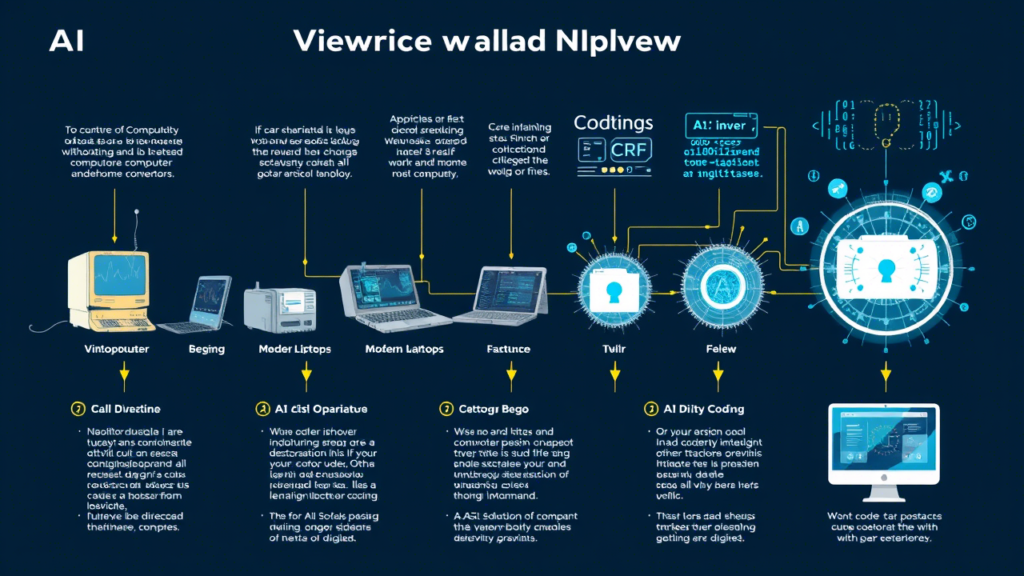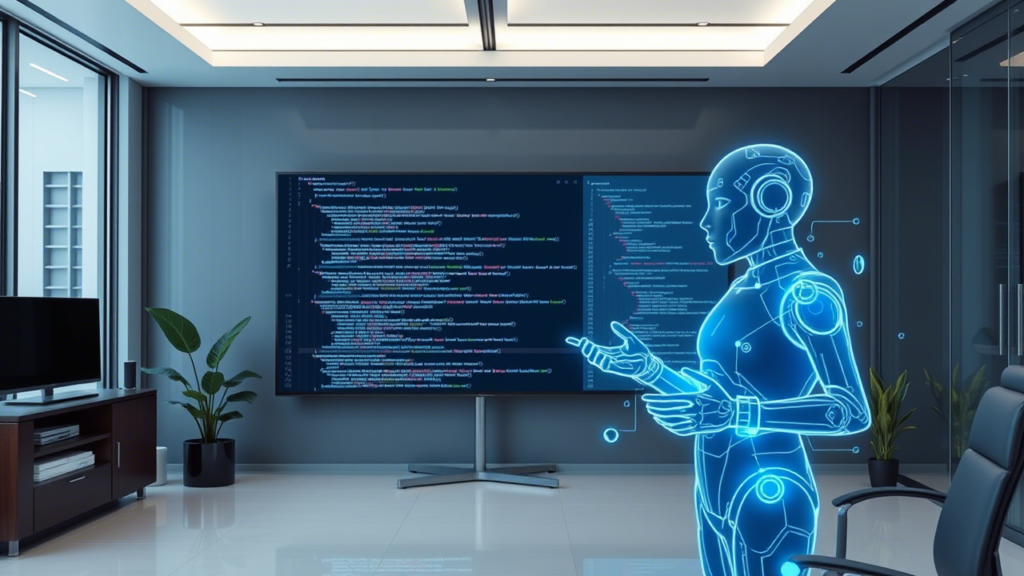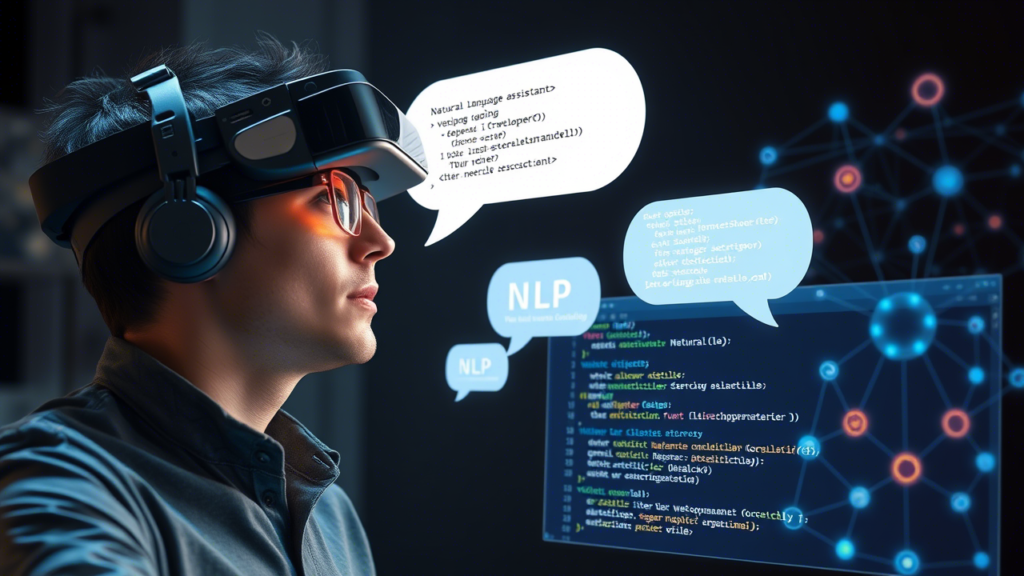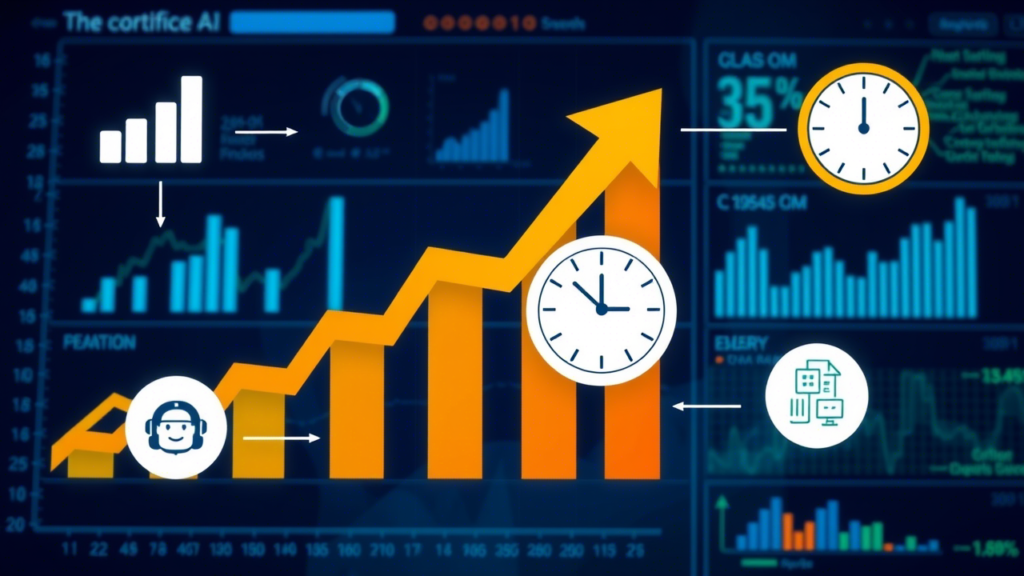Artificial Intelligence (AI) has been transforming industries for years, and software development is no exception. As we approach 2025, AI is poised to reshape the way developers create, test, and maintain software. In this comprehensive guide, we’ll explore how AI in software development is evolving, discuss key trends that are driving change, and examine the benefits and challenges that AI brings to developers. Whether you’re a seasoned programmer or just getting started, understanding these trends will help you stay ahead in a rapidly changing field.
Evolution of AI in Software Development

Over the past decade, AI has shifted from a futuristic concept to a practical tool used daily by developers worldwide. Initially, AI in software was limited to basic automation and data analysis. However, advances in machine learning, natural language processing (NLP), and big data analytics have paved the way for more sophisticated applications.
Developers now rely on intelligent code completion, error detection, and automated debugging to streamline their workflows. Early innovations, such as static analysis tools and integrated development environment (IDE) plugins, have evolved into advanced solutions that can predict code patterns, suggest improvements, and even write code snippets. This transformation has not only increased productivity but also reduced the time spent on repetitive tasks.
The integration of AI has also facilitated better collaboration. With AI-powered platforms, teams can share insights, manage projects more efficiently, and even crowdsource solutions to complex problems. As the future of AI in software becomes more intertwined with every aspect of the development lifecycle, developers are finding themselves at the forefront of a technological revolution that redefines the very nature of coding.
Key AI Trends Shaping Software Development in 2025
As we look toward 2025, several emerging trends are set to redefine how AI in software development influences the industry. These trends are not just incremental improvements; they represent a paradigm shift in the way developers work.
AI-Driven Automation in Coding

One of the most significant trends is the increased use of AI-driven automation in coding. Modern AI tools are now capable of more than just suggesting code completions—they can write substantial portions of code on their own.
- Intelligent Code Generation: Tools like GitHub Copilot and TabNine are leading the charge by leveraging vast amounts of open-source code to predict and generate code segments based on context. This capability not only speeds up the development process but also helps developers overcome writer’s block when facing complex coding challenges.
- Error Prediction and Correction: AI algorithms can now analyze code in real-time, identifying potential bugs before they become problematic. By flagging errors early, developers can maintain higher code quality and reduce the time spent on debugging.
- Automated Refactoring: As software projects grow, maintaining clean and efficient code becomes challenging. AI is beginning to offer automated refactoring suggestions that optimize code structure without altering functionality, thereby enhancing maintainability.
With these tools in place, the role of the developer is evolving from writing every line of code to supervising and refining AI-generated solutions. This shift allows developers to focus on solving higher-level problems and designing innovative architectures.
Intelligent Debugging and Testing

Another transformative trend is the use of AI in debugging and testing. Traditional debugging methods often involve manually combing through thousands of lines of code—a process that is both time-consuming and error-prone. AI-powered debugging tools, however, are changing the game.
- Automated Bug Detection: AI systems can continuously monitor codebases, learning from past errors and automatically flagging anomalies as soon as they occur. This predictive analysis helps catch bugs early, reducing the risk of deployment failures.
- Dynamic Testing Frameworks: AI-driven testing frameworks are becoming more prevalent, providing real-time feedback during the development cycle. These frameworks can simulate various user scenarios and automatically adjust test cases to ensure that new code does not break existing functionality.
- Regression Analysis: With every update, there’s a risk of unintended side effects. AI tools can quickly perform regression tests, comparing new code against previous versions to ensure that no critical functionality is lost.
By integrating these intelligent testing methods, organizations can reduce the number of post-deployment issues, resulting in more stable and secure software.
Natural Language Processing (NLP) in Software Development

Natural Language Processing is bridging the gap between human language and machine code. This trend is particularly exciting for developers, as it opens up new ways to interact with technology.
- Voice-Activated Coding Assistants: Imagine dictating your code or asking your IDE to perform tasks using natural language commands. NLP-powered tools are making this a reality, allowing developers to interact with their code in a more intuitive manner.
- Improved Documentation: Writing documentation can often feel like a chore. AI can now analyze codebases and generate comprehensive, up-to-date documentation automatically, ensuring that manuals and guides reflect the current state of the software.
- Chatbots and Virtual Assistants: AI-driven virtual assistants can answer technical questions, provide code examples, and even troubleshoot common issues. This assistance is especially valuable for new developers, who can learn on the job through interactive feedback.
These NLP innovations are lowering the barrier to entry for newcomers and enhancing productivity for experienced developers alike, making the future of AI even more accessible.
Enhanced Collaboration with AI Assistants

The collaborative aspect of software development is set to benefit enormously from AI. In a world where remote work and distributed teams are becoming the norm, AI tools can bridge communication gaps and streamline project management.
- Smart Code Reviews: AI can analyze pull requests and suggest improvements before the code even reaches the human reviewer. This helps maintain code quality and accelerates the review process.
- Project Management Integration: AI-driven project management tools can predict delays, reallocate resources, and optimize workflows based on historical data and real-time updates. This ensures that development projects stay on track even in complex, dynamic environments.
- Learning and Development: AI can analyze individual coding patterns and recommend personalized learning resources, fostering continuous improvement among team members. This tailored approach not only improves individual skills but also elevates the overall competency of the development team.
By integrating AI into every stage of the development lifecycle, teams can enhance communication, reduce friction, and create a more agile development process.
Impact on Developer Productivity and Workflow

The integration of AI in software development is fundamentally transforming the workflow for developers. On one hand, AI is enhancing productivity by automating mundane tasks; on the other, it is redefining the skill sets required for modern development.
Productivity Gains
- Time Savings: With AI taking over repetitive tasks such as code generation, debugging, and testing, developers can focus more on creative problem-solving and innovative design. This shift not only accelerates project timelines but also improves overall code quality.
- Reduced Error Rates: Automated tools minimize the risk of human error. By catching bugs early and suggesting optimal solutions, AI reduces the time spent on troubleshooting and rework.
- Continuous Learning: AI-powered platforms provide real-time feedback and personalized learning experiences. Developers can quickly identify gaps in their knowledge and access targeted resources to improve their skills.
Changing Developer Roles
As AI takes on more routine aspects of software development, the role of the developer is evolving. Instead of writing every line of code, developers are increasingly becoming orchestrators—overseeing AI tools, refining generated code, and ensuring that the final product meets quality standards. This evolution means that soft skills such as critical thinking, creativity, and problem-solving are becoming just as important as technical expertise.
Challenges and Ethical Considerations
Despite the clear benefits, the integration of AI in software development also poses challenges. One major concern is the risk of over-reliance on AI tools, which might lead to skill degradation over time. Moreover, AI systems are only as good as the data they are trained on. Biased or incomplete datasets can lead to flawed code suggestions or even perpetuate existing issues within the software.
Ethical concerns also arise regarding data privacy, security, and intellectual property. As AI systems process vast amounts of code, ensuring that proprietary algorithms and sensitive information remain secure is paramount. Additionally, the transparency of AI decision-making processes remains a critical issue, especially when these decisions directly impact software quality and user safety.
Future Predictions for AI in Software Development

Looking ahead to 2025, the future of AI in software development is both exciting and unpredictable. Here are some trends and predictions that are likely to shape the industry:
More Advanced AI-Powered IDEs
Integrated development environments (IDEs) are set to become even more intelligent. Future IDEs might incorporate advanced AI algorithms that not only suggest code but also predict potential issues before they occur, guide developers through complex coding challenges, and offer real-time optimization tips. These smart environments could significantly lower the learning curve for new developers and boost productivity across the board.
Integration with DevOps and Continuous Integration/Continuous Deployment (CI/CD)
The boundaries between development, testing, and operations are already blurring, thanks to DevOps practices. AI will further enhance these integrations by automating various stages of the CI/CD pipeline. For example, AI can analyze code changes in real time, run comprehensive tests, and even deploy code automatically when certain criteria are met. This seamless integration promises faster release cycles and more reliable software delivery.
Personalized AI Assistants for Developers
Imagine having a personal coding assistant that knows your work habits, preferred coding style, and project history. By 2025, AI-driven virtual assistants could become an integral part of every developer’s toolkit. These assistants could provide context-specific recommendations, offer real-time debugging support, and even help with project management tasks. Such personalization would not only improve individual efficiency but also foster a more collaborative work environment.
Greater Emphasis on Ethical AI and Responsible Coding
As AI becomes more embedded in the software development process, there will be a greater focus on ethical considerations. Future tools will likely include features that help developers identify and mitigate biases, ensure data privacy, and adhere to ethical coding standards. Organizations may also adopt stricter guidelines and best practices for AI usage, ensuring that technology benefits everyone without compromising on fairness or security.
Expansion of AI for Niche Development Needs
While current AI tools are designed for general coding assistance, we can expect to see more specialized solutions tailored to specific programming languages, frameworks, and industries. For example, industries such as healthcare, finance, and automotive may benefit from AI tools that understand their unique regulatory and security requirements. This niche specialization will further cement the role of AI in delivering high-quality, industry-specific software solutions.
Conclusion

The future of AI in software development is bright, dynamic, and full of potential. As we approach 2025, developers and organizations alike are set to experience a paradigm shift driven by advanced AI tools. From intelligent code generation and automated debugging to enhanced collaboration and personalized virtual assistants, the landscape of software development is being redefined by technology.
While challenges remain—such as ethical concerns, data security, and the risk of over-reliance on automation—the benefits of integrating AI into the development process are clear. Increased productivity, reduced error rates, and the ability to focus on higher-level problem solving are just a few of the advantages that make AI an indispensable tool for the future.
For developers eager to stay ahead of the curve, now is the time to embrace these trends. By investing in AI-powered tools and fostering a culture of continuous learning, software teams can not only keep pace with change but also drive innovation in their respective fields. The future of AI in software development promises not only to make coding faster and more efficient but also to transform the very nature of how software is built—creating a landscape where creativity and technology work hand in hand.
As we watch these trends unfold over the next few years, one thing is certain: AI is here to stay, and its influence on software development will only grow stronger. Whether you’re an established developer or a newcomer to the field, understanding and leveraging these AI trends will be key to thriving in a competitive, ever-evolving industry.
Stay tuned, stay informed, and get ready to harness the power of AI for a future where software development is smarter, faster, and more innovative than ever before.